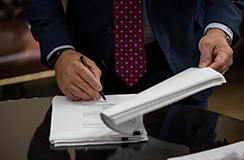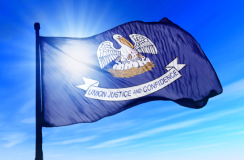CPA firms are required by professional standards to maintain independence regarding their clients. The reasons for this are not hard to understand. No one would be able to rely on an audit report if, for example, the CPA performing the audit was the son of the auditee’s chief executive officer.
Auditors and audit organizations (CPA firms) must maintain independence so that their opinions, conclusions, judgments and recommendations will not only be impartial, but will be viewed as impartial by reasonable and informed third parties.
A threat to a CPA's independence comes from one of two areas:
- A situation that could affect the auditor's ability to conduct the engagement without being affected by influences that compromise professional judgment (independence in fact)
- A situation that could expose the auditor to circumstances that would cause a reasonable and informed third party to conclude that the integrity, objectivity, or professional skepticism of the auditor, or the organization the auditor works for, has been compromised (independence in appearance).
A CPA firm must make an assessment, before accepting each audit engagement, to determine whether any relationships or other conditions exist that may be an impairment or threat to their firm’s independence.
If the CPA firm determines that threats exist, the firm must then determine whether these threats can be overcome by putting appropriate safeguards in place to reduce the threats to a level that would allow them to maintain their independence. Examples of safeguards may include removing a staff member with an independence threat from the audit engagement, or having another CPA firm review the audit work performed.
If the threats to a firm’s independence cannot be overcome by appropriate safeguards, the CPA firm cannot accept the engagement. If the threat is identified after the engagement has commenced, the CPA firm must withdraw from the engagement.
A CPA firm cannot enter into an engagement with a pre-conceived notion that the local auditee is doing everything right; or that they will issue a clean or unmodified opinion and write no findings no matter what they discover. It also means that the CPA cannot enter into the engagement with a pre-conceived notion that the local auditee is doing everything wrong. Going into an engagement with either attitude impairs the independence of the CPA firm.
The CPA firm that performs a local auditee’s audit will not be able to perform certain non-audit services for the local auditee. The CPA firm may make recommendations to the local auditee, but may not implement the recommendations for the local auditee. The CPA firm may propose adjustments to a local auditee’s financial statements, but may not post the adjustments into the local auditee’s books and records without the approval of the local auditee's management. The CPA firm may not make decisions that should be made by the local auditee’s management, and still remain independent to perform the audit.
The Louisiana Legislative Auditor (LLA) will not approve an audit or review/attestation engagement of a CPA firm if LLA has valid reason to believe that the CPA firm is not independent regarding the local auditee. A CPA firm is not required to be independent to perform a compilation engagement.
Questions:
- The auditor of our city is the cousin of the public works director. Wouldn’t that mean that he lacks independence regarding the city and cannot perform the audit?
- To whom should I direct my complaint if I believe that a local auditee’s CPA firm has an independence impairment?
- There is a finding in our school board’s audit report stating that the financial statements are prepared by the CPA firm that performs the audit. I thought the financial statements were the responsibility of the school board. Wouldn’t that mean that the CPA firm that performs the audit could not also prepare the school board’s financial statements?
- How can a CPA firm be independent if the local auditee pays them to perform their audit?
- LLA is a state agency. How can it audit state agencies and maintain its independence?
- Will LLA staff make a ruling on the independence of a CPA firm?



